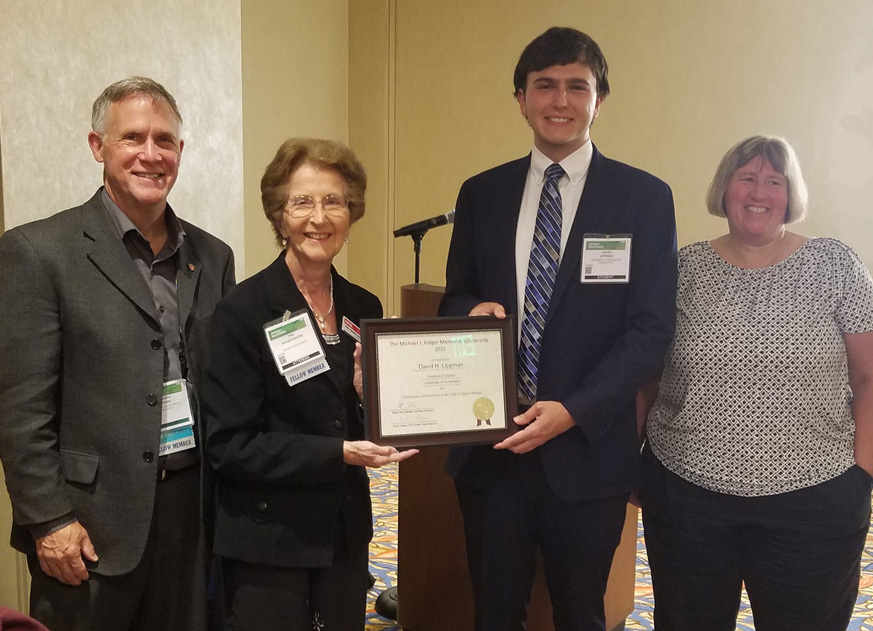|
Research Topics
As part of an undergraduate senior design team,
David studied the effect of mid-spatial
frequency (MSF) error on a fabricated monolithic freeform telescope. A model to
simulate how MSF errors of different amplitudes and frequencies affected the imaging
performance to define tolerances for future fabrication was developed. This model was then verified in the lab by
measuring the through-focus point spread function.
In graduate school, David's first major independent project focused on illumination design. He then
sought to devise a method for designing illumination optics that produced a
prescribed irradiance distribution given a known source distribution.This has
been done previously using freeform surfaces but with some limitations. Instead, David's new objective was to use freeform gradient-index (F-GRIN) media
in designing such illumination optics for prescribed irradiances. Recent advances in the additive
manufacturing of optical materials have enabled F-GRIN materials that can possess three dimensional refractive index change. Due to the nature of additive manufacturing, refractive
index discontinuities can be incorporated just as easily as continuous gradients. For this reason,
3D printed F-GRIN is a prime technology for use in freeform illumination optics. It was then shown
for the first time that a single F-GRIN optic with plane-parallel surfaces can be designed to produce
complex irradiance distributions containing holes, sharp edges, and null backgrounds. Once, the first F-GRIN illumination optics were fabricated, the
results were far better than expected for the level of complication required in printing.
Recently, David worked on a different project, this time for imaging design, that applied
F-GRIN to the design of annular folded lenses (AFLs). A unique design form, AFLs are
rotationally symmetric but folded axially using annular reflective surfaces with a central
obscuration to obtain a very compact package. The chief benefit of AFLs is very large apertures
for high resolution imaging but with unusually small telephoto ratios (< 0.5 possible). Although,
AFLs are most often made monolithic for ease in fabrication, so chromatic aberrations quickly
limit performance in broadband applications. For this reason, the unique chromatic
properties of GRIN were applied to designing high-specification, polychromatic AFLs. The additional
degrees of freedom GRIN offers also helped improve monochromatic aberration correction.
During much of the past year, David worked on a special research project focused on lens
design as taught by Rudolf Kingslake. Some teaching materials of Professor Kingslake’s were
recently uncovered, including more than 170 lens design problems handwritten on index cards. These problems present a fascinating historical perspective on lens design and what it was like
learning lens design from Professor Kingslake. In the past year, David answered
all of the problems and typed up solutions stretching ~300 pages to be included in a book published
by SPIE Press (expected in 2023).
|

Tina Kidger presents Kidger Scholarship
award to
David Lippman
SPIE Optics + Photonics
San Diego, CA, August 23, 2022
Left to right above:
THOMAS BROWN
Director, Institute of Optics,
TINA KIDGER
CEO Kidger Optics,
DAVID LIPPMAN
Kidger Scholarship Awardee
JULIE BENTLEY
Professor, Institute of Optics
|


